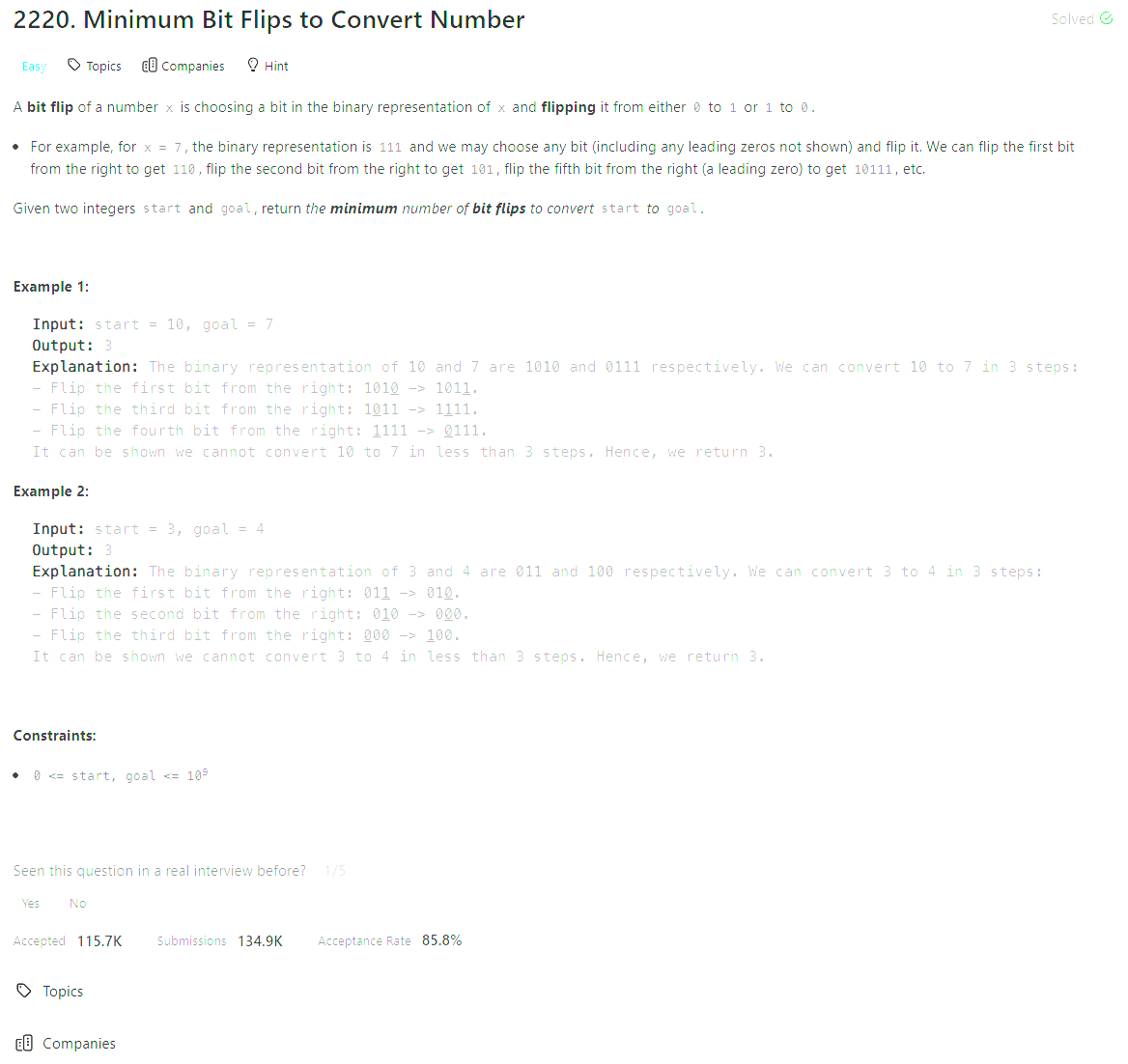Problem of The Day: Minimum Bit Flips to Convert Number
Problem Statement

Intuition
The goal is to determine how many bit flips are needed to convert start into goal. The most straightforward way to think about this is by comparing the binary representations of start and goal. For every bit position where the two numbers differ, we will need one flip. The XOR operation gives us exactly this information because it results in a 1 for differing bits and 0 for matching bits.
Approach
We iterate over each bit of both start and goal, comparing the bits at the same position. If the bits differ, we increment a counter. We can compare the least significant bit of each number using the bitwise AND (& 1) operation, and then right shift (>>) both numbers to check the next bit. This continues until both start and goal become zero.
Complexity
-
Time complexity: The time complexity is \(O(\log(\max(\text{start}, \text{goal})))\) because we are iterating over the bits of the larger number, and the number of bits to process is proportional to the number of bits required to represent the larger number.
-
Space complexity: The space complexity is \(O(1)\) because we are using only a constant amount of extra space, regardless of the input size.
Code
class Solution:
def minBitFlips(self, start: int, goal: int) -> int:
res = 0
while start or goal:
a = start & 1
b = goal & 1
if a != b:
res += 1
goal >>= 1
start >>= 1
return res
Editorial
Approach 1: Brute Force
class Solution:
def minBitFlips(self, start: int, goal: int) -> int:
count = 0
while start > 0 or goal > 0:
# Increment count if the current bits differ
if (start & 1) != (goal & 1):
count += 1
# Shift both numbers to the right to check the next bits
start >>= 1
goal >>= 1
return count
Approach 2: Recursive Approach
class Solution:
def minBitFlips(self, start: int, goal: int) -> int:
# Base case: both numbers have been fully processed
if start == 0 and goal == 0:
return 0
# Flip for the current least significant bit
flip = 1 if (start & 1) != (goal & 1) else 0
# Recurse for the next bits by right-shifting both numbers
return flip + self.minBitFlips(start >> 1, goal >> 1)
Approach 3: XOR Rules
class Solution:
def minBitFlips(self, start: int, goal: int) -> int:
# XOR to find differing bits
xor_result = start ^ goal
count = 0
# Count the number of 1s in xor_result (differing bits)
while xor_result:
count += xor_result & 1 # Increment if the last bit is 1
xor_result >>= 1 # Shift right to process the next bit
return count
- time: O(number of bits)
- space: O(1)